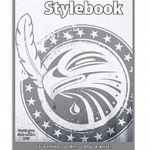Congress Extends Various Federal Indian Tax Incentives
According to the Native American Finance Officers Association (NAFOA):
The Indian Tax Extenders, found in the Tax Increase Prevention Act of 2014, [H.R. 5771], cleared the Senate yesterday by a vote of 76-16. The Tax Prevention Actprovides a one-year extension to a number of tax incentives that expired in December of 2013. The so-called Indian Extenders included in the legislation are designed to incentivize direct investment in projects on Indian lands and the hiring of Indian people. The New Markets Tax Credit program, included in the legislation, will also impact tribal development.

The provisions affecting Indian Tribes include:
1. Accelerated Depreciation for Business Property on Indian Reservations
This provision provides an incentive for private businesses to locate on Indian reservations. It provides qualifying property and infrastructure investments with a faster write-off than such property would otherwise receive under the regular tax code depreciation schedules. Accelerated Depreciation is a critical component of attracting capital-intensive projects to reservations and can bring higher-skilled jobs to Indian communities.
2. Indian Employment Tax Credit
This provision provides a 20-percent tax credit for the first $20,000 of wages for any tribal member or spouse employed by a private business operating on an Indian reservation. The provision is not applicable to tribal government jobs, high-wage jobs (defined as jobs paying more than $45,000 per year), or gaming jobs, which limits its value.
3. The Indian Coal Production Tax Credit
This provision provides a production tax credit equivalent to $2.00 per ton to coal produced on land owned by an Indian tribe.
4. New Market Tax Credit
This provision extends the New Markets Tax Credit (NMTC) Program for FY 2014. The NMTC Program was established by Congress in 2000 to spur investments in projects located in low-income communities. While this provision holds promise for Indian Country, tribes have not received a fair share of investments from the popular incentive.
For more information, please contact Kayla Gebeck, Kayla@nafoa.org or (202) 770-8321.
Gabe Galanda blogged about Congress' previous extension of these tax incentives, in 2013, via the Fiscal Cliff bill package.
Stylebook for Indian Country Journalists Published As E-book
SEATTLE – Does the First Amendment apply to journalists covering stories on Indian reservations? What is “Indian country”?
What authority do Tribal governments have on- and off-reservation?
What are the proper terms for the clothing articles someone wears at a gathering?
“Indian Country Stylebook for Editors, Reporters and Writers” is newly published as an e-book (available at Amazon.com), and is designed to help its users understand Indian country and its customs, cultures and laws.
The guidebook evolved after a panel discussion, “Tribal Nations and the Media,” at the 2013 Washington Newspaper Publishers Association convention in Olympia. Questions asked at that conference made it clear that such a guidebook would be helpful.
The Indian Country Stylebook is patterned after the Associated Press Stylebook for familiarity and ease of use. The guide contains more than 100 entries, with correct spellings, word usages, and legal references; a briefing on American Indian Law; a briefing on newsgathering in Indian Country; a directory of indigenous nations in Washington state; and a directory of Indian country media in Washington state.
The following individuals participated in the creation of the stylebook: Richard Walker, Mexican/Yaqui, an editor for Sound Publishing Co. and correspondent for Indian Country Today; Jackie Jacobs, Lumbee, media relations coordinator for the Quileute Tribe and principal of JTalentgroup, a Seattle-based Public Relations and Marketing agency; and Gabriel Galanda, Round Valley Indian Tribes, and Amber Penn-Roco, Chehalis Tribe, Galanda Broadman, PLLC.
The cover, “All Rights Reserved,” was designed by the artist Louie Gong, Nooksack. Mark Trahant, Shoshone/Bannock, columnist, author and 2014 Atwood Chair of Journalism at the University of Alaska Anchorage, provided pre-publication review.
Gabriel “Gabe” Galanda is the Managing Partner at Galanda Broadman. He is a citizen of the Round Valley Indian Tribes. Amber Penn-Roco is an Associate in the firm's Seattle office. She is a Chehalis Tribal member.
Gabe Galanda in "Indian Gaming": Why Isn't the NIGC Enforcing IGRA?
In a column for the feature, "Ask the Experts: Spotlight on 2015 and Beyond," in the New Year edition of Indian Gaming magazine, Gabe Galanda questions the NIGC's commitment to enforcing IGRA and related laws in Indian Country:
2015 will bring answers to growing questions surrounding the National Indian Gaming Commission’s ambivalence about enforcement of the Indian Gaming Regulatory Act.
In Bay Mills, various state amici curiae argued to the U.S. Supreme Court that the “Commission only rarely invokes its authority to enforce the law against Indian tribes.” That criticism tracks with the U.S. Government Accountability Office (GAO)’s recent preliminary report to Congress that “[i]n recent years, the Commission has rarely initiated enforcement actions.” According to GAO findings, the NIGC issued a single Notice of Violation in 2012 and 2013—combined.
Meanwhile, as tensions boil over at several California tribal casinos, people are asking: Where’s the NIGC?
After prolonged IGRA violations and related physical violence within the Picayune Rancheria of Chukchansi Indians, a federal judge closed the tribe’s casino, describing the situation as an “explosive keg.” The NIGC took no enforcement action for nearly three years. According to the Fresno Bee, former NIGC Chairman Phil Hogen said “he’s unsure why the NIGC now takes longer to file action against tribes not following Indian gaming regulations than it did under his watch.”
Likewise, the NIGC failed to help resolve a violent situation within the Paskenta Band of Nomlaki Indians this summer. Former NIGC Regional Director Ken Many Wounds issued an investigatory report that described an “unprecedented show of force by armed guards” and “palpable potential for violence” throughout Paskenta’s casino floor. He expressed “surprise that the NIGC has not taken swift action to shut down the Rolling Hills Casino” and “by the rather nonchalant pace of the NIGC’s investigation” into obvious IGRA and state-tribal compact violations.
And as mass Indian disenrollment accompanies these catastrophes, so do tribal revenue allocation plan-related IGRA violations. Yet, the NIGC has not taken a single enforcement action for improper tribal gaming per capita payments in over five years.
Given that certain tribes’ irresponsible use of gaming revenues once caused Senator John McCain to propose an IGRA amendment to allow federal review of a “reasonable method of providing for the general welfare of the Indian tribe and the members of the Indian tribes,” non-offending tribes should be concerned.
Indeed, with the GAO’s final report expected before long, as Dave Palermo posits, its “critical assessment” of the Commission, “coupled with diminished NIGC enforcement, could be viewed by senators as justification to seek increased federal regulation of the industry.” Before that opportunity might present itself to the Republican-controlled Congress, hopefully the NIGC will reestablish a meaningful enforcement presence in Indian Country.
Gabriel “Gabe” Galanda is the Managing Partner at Galanda Broadman. He is a citizen of the Round Valley Indian Tribes. Gabe can be reached at 206.300.7801 or gabe@galandabroadman.com.
Gabe Galanda Featured in NWLawyer
Gabe Galanda is featured in this month's edition of NWLawyer in reference to the Excellence in Diversity Award he was bestowed with by the Washington State Bar Association this fall. The WSBA also produced a video commemoration of Gabe's award and accomplishments, which can be viewed on YouTube. Gabe is pictured receiving his award, on the cover of the magazine, at bottom right:
as well as inside of the magazine:
Gabe was primarily honored for his work associated with Huy, a non-profit that provides economic, educational, rehabilitative and religious support for American Indian, Alaska Native, Native Hawaiian and other indigenous prisoners in the Pacific Northwest and throughout the United States. In 2012, Gabe founded Huy–pronounced “Hoyt” in the Coast Salish Indian Lushootseed language, to mean “see you again/we never say goodbye.” He serves as the Chairman of Huy’s Board of Advisors, and runs the non-profit through his law office.
Gabriel “Gabe” Galanda is the Managing Partner at Galanda Broadman. He is a citizen of the Round Valley Indian Tribes. Gabe can be reached at 206.300.7801 or gabe@galandabroadman.com.
Anthony Broadman Quoted by National Media Re DOJ's New Tribal Pot Policy
Anthony Broadman has been quoted or featured by the Associated Press, ABC News, Time, VICE News and other media outlets regarding the Department of Justice's recently issued policy regarding marijuana cultivations and sales on federal Indian lands. He has blogged about the intersection of Washington's legalization of recreational marijuana, and tribal sovereignty (here and here).

Anthony Broadman is a lawyer with Galanda Broadman in Seattle. He told Vice News the following in an interview:
“People who I’ve spoken to are excited about this, but along with that excitement there is a lot of caution that stems from tribal history with alcohol and substance abuse. The biggest issue is if tribes are going to want to use a drug as a way to make money. The history of Indian tribes and substance is not a pretty one.”
Anthony's partner Gabe Galanda has also spoken to Pacific Northwest tribal leadership on these topics. (His related PowerPoint slides are potentially available upon request.)
Galanda Broadman takes no position on whether tribal governments should legalize, regulate or tax recreational or medicinal marijuana, or forbid the the cultivation, possession or sale of marijuana, on Indian Country lands; but instead encourages every tribe to develop some form of policy to address the host of tribal sovereignty issues poses by state-legalized marijuana.
Anthony Broadman is a partner at Galanda Broadman PLLC. He can be reached at 206.321.2672, anthony@galandabroadman.com, or via www.galandabroadman.com.
Galanda, Penn-Roco Co-Author Indian Country Stylebook for Journalists
Gabe Galanda and Amber Penn-Roco collaborated with journalist Richard Walker (Mexican/Yaqui), publicist Jackie Jacobs (Lumbee) and indigenous artist Louie Gong (Nooksack)--all trailblazers in their respective fields--to publish the Indian Country Stylebook for for editors, writers and journalists. The stylebook is patterned after the AP Stylebook.
The Indian Country Stylebook include definitions and proper uses, and briefings on American Indian law and news-gathering in Indian Country. Gabe and Amber authored the Indian law section.
Leading Indian journalist, Mark Trahant (Shoshone-Bannock) reviewed the Indian Country Style Guide
"The best journalism is precise. That includes references that are accurate and reflect Native people, tribes and communities as we see ourselves. That's why the Indian Country Stylebook is an essential reference."
The Indian Country Stylebook is available for download at Amazon.com.
Gabriel “Gabe” Galanda is the Managing Partner at Galanda Broadman. He is a citizen of the Round Valley Indian Tribes. Amber Penn-Roco is an Associate in the firm's Seattle office. She is a Chehalis Tribal member.









